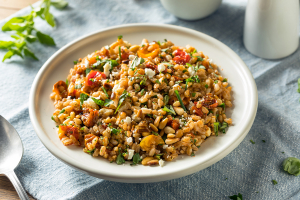Mediterranean diet: benefits and characteristics

The Mediterranean diet is the diet par excellence, recommended by nutritionists and dieticians. It is not a dietary program, as many believe, but it is a real lifestyle that brings many benefits to health, as it offers a perfect balance of all the essential nutrients for the well-being of our body.
The Mediterranean diet, which in 2010 was proclaimed "Intangible Heritage of Humanity" by UNESCO, is a culture handed down for generations in the areas overlooking the Mediterranean.
Health benefits of the Mediterranean diet
Following this diet improves memory, helping to prevent diseases such as Alzheimer's; extra virgin olive oil helps to improve short-term memory. It also protects our body from oxidative stress and reduces the likelihood of developing chronic kidney diseases. The benefits of the Mediterranean diet would come from the daily consumption of fruit, vegetables, legumes, cereals and white meat, while minimizing the consumption of red meat, industrial products and sweets. Consuming extra virgin olive oil and dried fruit would also help prevent cardiovascular disease by protecting us from strokes and heart attacks.
What are the main foods of the Mediterranean diet
The main food of the Mediterranean diet is olive oil, which helps to control cardiovascular risk thanks to the polyphenols it contains. The oil works as a powerful anti-inflammatory that prevents cardiovascular diseases and atherosclerosis. The Mediterranean diet is also characterized by the consumption of foods of vegetable origin, fruits and vegetables play a central role in this diet; they guarantee the right amount of mineral salts and vitamins by reducing the caloric intake. Dried fruit is also important, especially nuts and almonds, as they are rich in good fats that protect the arteries. Cereals, durum wheat in particular, are a common food for all Mediterranean populations as they are the raw material used to make pasta and bread. Pasta provides an excellent supply of carbohydrates in the form of starch, wholemeal pasta then provides greater quantities of fiber and mineral salts, beneficial for a proper functioning of the gastrointestinal system.
Red wine, a drink that unites Mediterranean countries, also contains polyphenols that reduce cardiovascular risk. Obviously the consumption depends on the physical state of the individual person, as it could increase the triglycerides. Anyway a healthy person can consume a glass of red wine a day.





